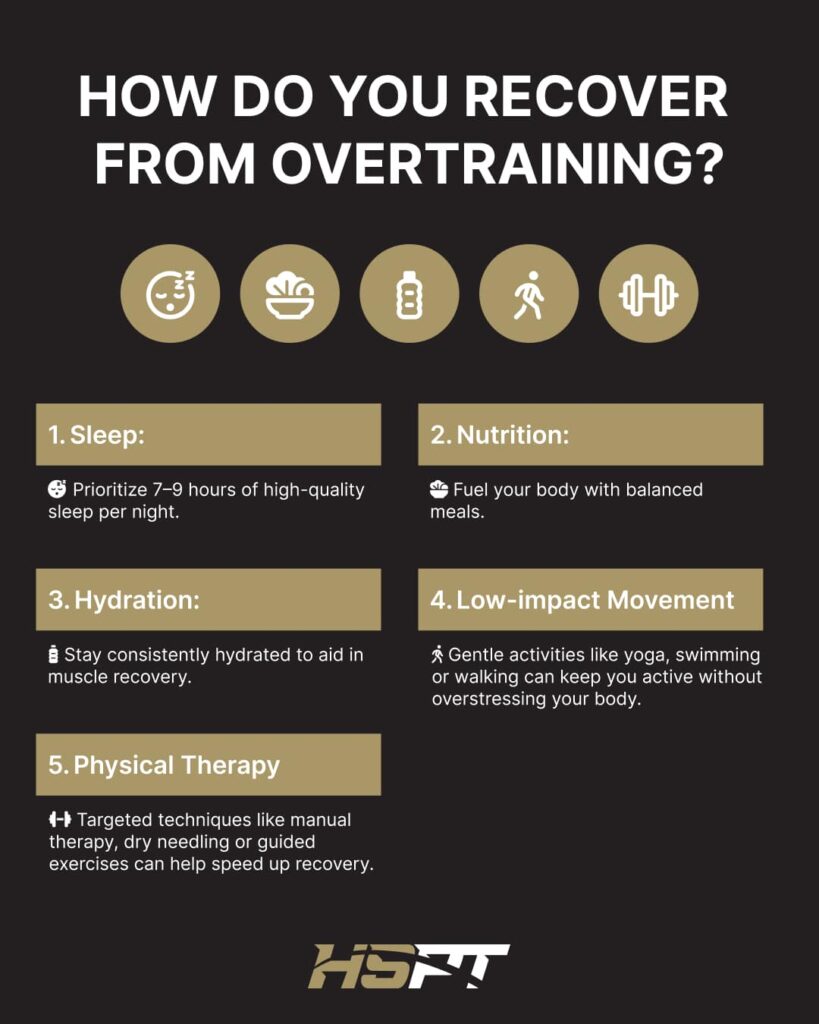For athletes and active individuals, pushing limits is part of the process. But there’s a fine line between progress and burnout. Overtraining occurs when your body doesn’t have adequate time to rest and recover, leading to physical, mental and emotional exhaustion. Understanding the signs of overtraining and how to recover from it is essential for long-term health and performance.
What is Overtraining?
Overtraining happens when you train too hard too often without giving your body enough time to recover. It can affect both elite athletes and weekend warriors. When the balance between training stress and rest tips too far, the body begins to break down instead of build up.
Often confused with normal fatigue, overtraining syndrome (OTS) heal is a more serious and long-lasting condition that can sideline athletes for weeks—or even months—if left unaddressed.
What are Symptoms of Overtraining?
Overtraining symptoms vary depending on the severity but they typically follow a progression. Recognizing the stages early can prevent long-term complications.
Stage 1 Overtraining
In the early stages, symptoms can be subtle:
- Increased fatigue
- Slight decline in performance
- Elevated resting heart rate
- Decreased motivation or enjoyment of exercise
Stage 2 Overtraining
As overtraining progresses:
- Persistent muscle soreness
- Trouble sleeping
- Irritability or mood swings
- Poor concentration
- Frequent minor illnesses due to lowered immunity
Stage 3 Overtraining
In advanced stages, symptoms become more severe:
- Significant decrease in performance
- Hormonal imbalances
- Chronic fatigue
- Depression or anxiety
- Increased risk of injury
If you’re noticing multiple symptoms across stages, it’s time to take a step back and reassess your training regimen.
How Do you Recover From Overtraining?

Recovery starts with rest—and lots of it. Give your body and mind a break from intense physical activity. Additional strategies include:
Sleep
Prioritize 7–9 hours of high-quality sleep per night.
Nutrition
Fuel your body with balanced meals rich in protein, healthy fats and complex carbs.
Hydration
Stay consistently hydrated to aid in muscle recovery.
Cross-training or Low-impact Movement
Gentle activities like yoga, swimming or walking can keep you active without overstressing your body.
Physical Therapy
Targeted techniques like manual therapy, dry needling or guided exercises can help speed up recovery and restore optimal function.
How Do You Prevent Overtraining?
Preventing overtraining means listening to your body and creating a well-rounded training plan. Here’s how:
- Schedule rest days regularly in your routine
- Periodize your training by cycling intensity and volume over time
- Track progress to spot early signs of fatigue or declining performance
- Work with professionals like physical therapists to build a personalized program that matches your fitness level and goals
Personalized Physical Therapy in Maryland
At Herlong Sports Physical Therapy, we specialize in helping athletes recover, rebuild and return stronger. Our licensed therapists tailor treatment plans to your body’s needs—whether you’re in recovery from overtraining or aiming to prevent it altogether. We serve clients across Maryland with one-on-one care, advanced techniques and a commitment to getting you back to what you love.
Ready to bounce back from burnout? Contact us today to schedule your personalized assessment and take the first step toward lasting recovery.


